‘Brilliant’: Very Aussie response to crisis
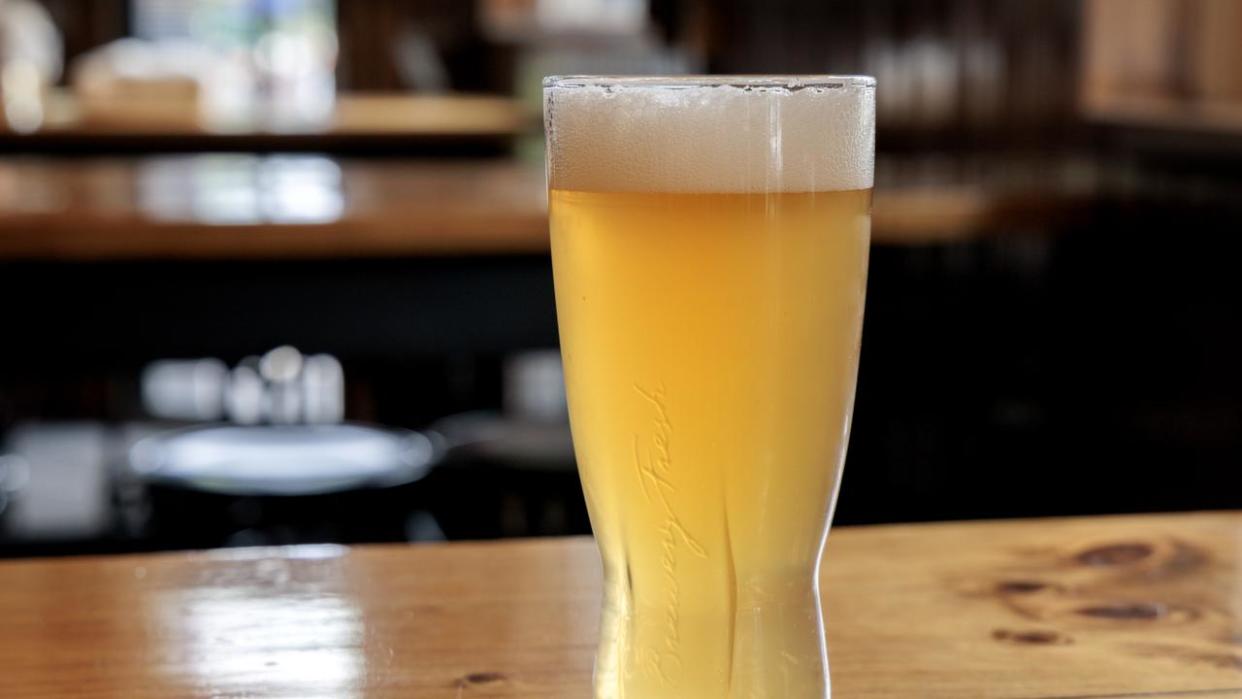
An Aussie man has given a hilarious response when questioned about the cost of living pressures.
The Gold Coast man, who was wearing a singlet during an early morning walk, was stopped by a Today show reporter on Wednesday and asked about how he felt about the federal budget.
“Put it this way, you used to be able to get 60 schooners for 300 bucks, now you only get 30 schooners,” the man told a Today reporter on Wednesday.
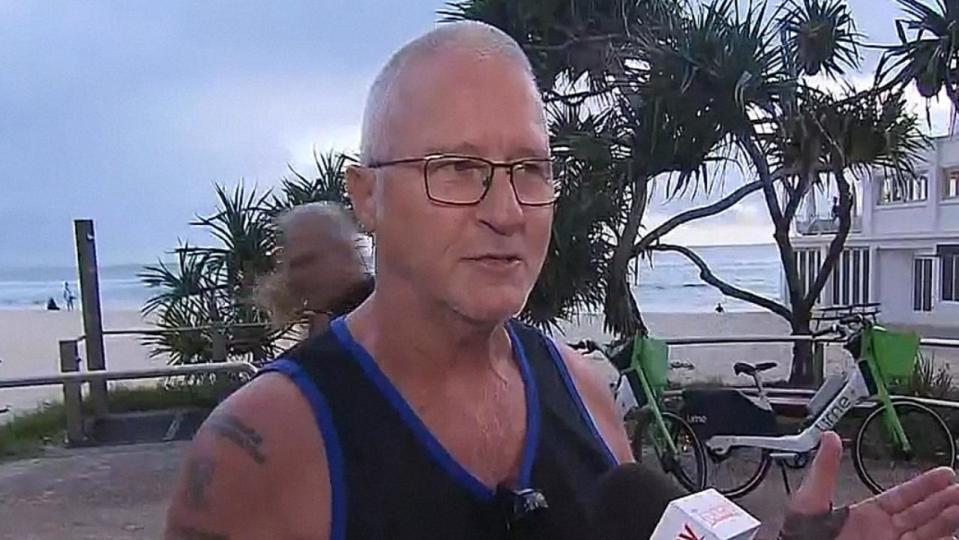
Today host Sarah Abdo was impressed by the man’s response stating “he’s done the maths hasn’t he”.
“Brilliant,” she said.
While the man’s maths might vary depending on how much alcohol a person buys and consumes, it’s not too far from the rising costs at the bottle shop.
The 2024-25 federal budget stated the excise on alcohol is expected to yield $9.4bn by 2027-28 financial year.
The tax is calculated by the twice-yearly CPI-linked uplift and automatically rises twice a year in February and August,
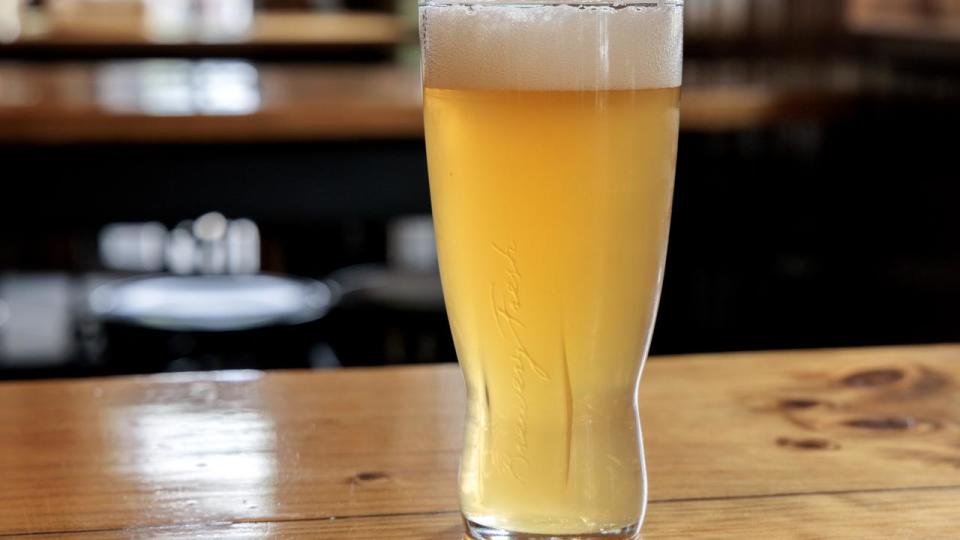
Based on the latest budget papers, alcohol excise is forecast to earn $2.6bn from beer, $3.6bn from spirits and $1.8bn from other alcohol.
In February, the latest alcohol price rise saw one litre of pure alcohol would be subject to $101.85 cents of excise — up from $100.05 — a rise of 1.8 per cent.
The tax on a pint also increased to 90c, while the tax on a slab was expected to rise to $20, according to the Brewers Association.
Australians have been feeling the pinch as prices for every day items surge across the country.
Delivering a surplus of $9.3bn on Tuesday night, Treasurer Jim Chalmers said the key cost-of-living relief for Aussie families includes a surprise $300 energy rebate for all families, and the government’s promised revised Stage 3 tax cuts.
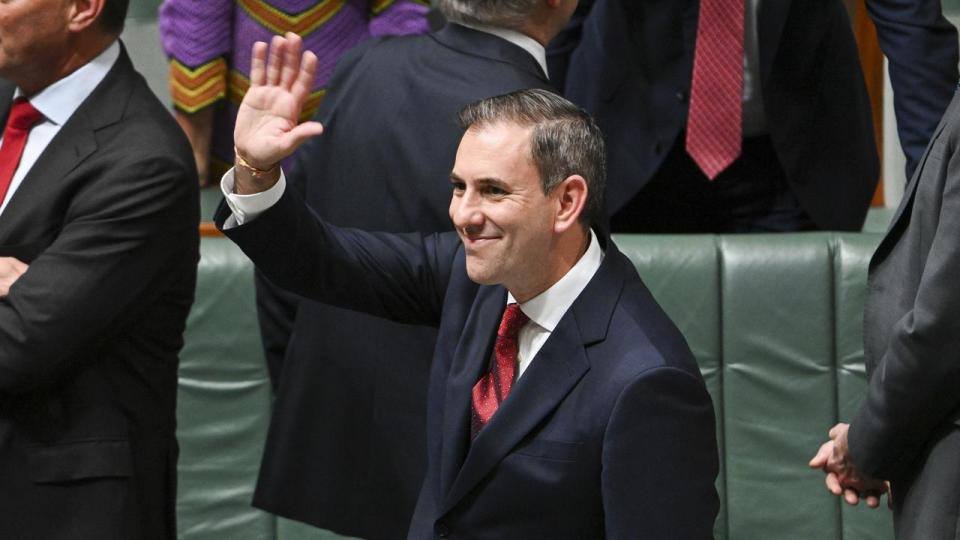
He promised the government’s relief measures would not increase inflation, and claimed Australia was among the “best placed economies to manage these uncertainties and maximise our opportunities”.
This year’s budget contained little for welfare recipients calling for increased payments, or motorists facing growing fuel prices.
Bill payers
All households will receive a $300 energy rebate in the budget’s biggest surprise sweetener. The $3.5bn scheme also includes a $325 rebate for about one million eligible small businesses.
Low income renters
The government will invest $1.9bn to boost the maximum rates of Commonwealth Rent Assistance by 10 per cent. The measure will come into effect from September 20.
Maximum rates are now 40 per cent higher than they were in May 2022.
Taxpayers
The government has followed through with its promise to provide a tax cut to every taxpayer, averaging to $36 a week, or $1888 when they lodge their tax returns.
However, while they will still get a tax cut, high-income earners making more than $140,000 would have been better under the Morrison government’s original plan.
Australians who need prescription medication
The cost of prescription medications listed on the Pharmaceutical Benefits Scheme (PBS) will be capped at $31.60 for the next year, with costs for prescriptions for pensioners and concession card holders frozen at $7.70 for the next five years.
Aged care workers
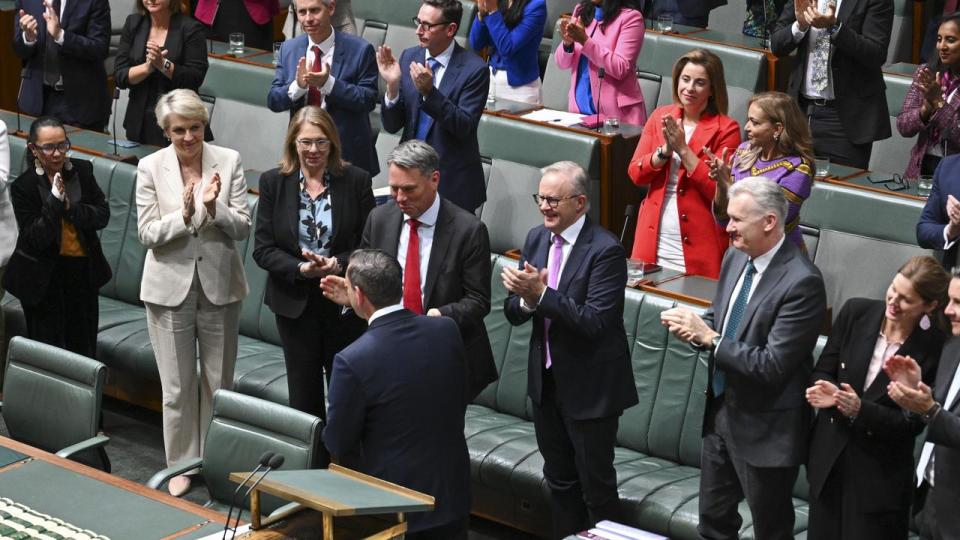
The government has committed to boosting wages for indirect and direct aged care workers, with the exact amount to be determined once the Fair Work Commission hands down its determination.
Child care workers
Childcare workers have also been promised a wage increase, however no specific figures were given.
Women
There’s a number of measures particularly aimed at women in this year’s budget. One of the biggest costs to the budget will be paying superannuation on paid parental leave, which will amount to $1.1bn over the four-year forward estimates period, with annual costs then amounting to $623.1m from July 2028. The government is also investing in women’s shelters, and will help women fleeing domestic violence by extending the Leaving Violence Program which provides eligible women with up to $5000 in financial support.
Aussies facing ill mental health
An eight-year package of $888.1m has been committed to give Australians improved access to mental health services. This includes the creation of a free “low-intensity digital service,” which will come online from January 1, 2026.
Australians will be able to access the service without a referral, with 150,000 people estimated to access the service every year.
The government has also flagged a network of walk-in Medicare Mental Health Centres for moderate to severe mental health needs, which will be open by June 30 2026.
Women with endometriosis
The federal government has announced a $49.1m investment into tackling endometriosis. From July 1, 2025, women suffering from the debilitating disease will have longer specialist consultations of 45 minutes or more covered under Medicare.
Small businesses
The $20,000 instant asset write-off, which had been slated to end on June 30 this year, will be extended for another 12 months. One million small businesses will also benefit from the $325 energy rebate, providing they meet the eligibility criteria.
Pensioners
Deeming rates will be frozen at current levels until June 30, 2025. This is estimated to help about 450,000 pensioners and 876,000 income support recipients.
Disorganised travellers
Last-minute holiday-makers will, for a price, be able to fast-track their passport applications from July 1 this year.
The five-day service will cost applicants $100, and is estimated to generate $27.4m in the five years to 2028-29.
Arts sector
Australia’s leading performing art schools will be propped up with $115.2m over four years, with an additional $36.9m in ongoing annual funding for members of the Arts8 collective.
France
$20.7m has been committed to the Australia-France Roadmap in the five years from 2023-24, plus an ongoing commitment of $3.9m a year. The measures will allow for more bilateral co-operation in defence and security, cultural and sporting promotion, and the creation of a France-Australia Centre for Energy Transition to support regional climate goals.
Northern Territory
A $4bn joint investment with the Northern Territory over the next decade will aim to address overcrowding in remote housing.
Essential services in remote communities have also been given $111.1m for critical health, safety, wellbeing, schooling and justice services.
All public schools in the Territory will also be fully-funded by 2029, with the government committing $736.7m over the next four years. A similar agreement has been reached in Western Australia, where all public schools will be fully funded by 2026, in a $785.4m arrangement.
Manufacturing industry
The government will funnel billions of dollars into helping key industries boost local manufacturing and bolster investment under its “Future Made in Australia Plan”.
Labor is investing in renewables, including $1bn to bolster domestic solar capacity
Uni students and graduates
The way higher education debt interest is indexed will now be tied to whichever is lowest of CPI or the wage price index.
This change will be backdated, and will wipe $3bn in debt for about three million Australians. Those who paid off their debt between June 30, 2023 and now will receive a tax credit equal to the amount their debt would have been slashed by.
The government has also committed to providing about 73,000 university and VET students with a $320 weekly placement payment to support them.
Farmers
Labor’s Future Drought Fund will get a $519.1m boost to fund programs to help farmers and regional communities prepare for droughts and improve climate resilience.
Tradies
An additional 20,000 fee-free TAFE places/ VET apprenticeships will be offered in a bid to address the chronic shortage of tradies in the construction sector.
The government will spend $90.6m to increase the pipeline of skilled workers in the construction and housing industry.
More money has been assigned to upskilling tradies in construction to help build more homes.

 Yahoo Lifestyle
Yahoo Lifestyle 
